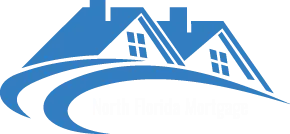Fast, Reliable, and Personalized Mortgage Solutions
13400 Sutton Park Dr S, Ste 1001, Jacksonville, FL 32224
(904) 440-1344
FHA Mortgage Loan

type of service
Service Info
HUD guarantees “eligible” loan applicants the ability to obtain mortgages with little or no money down. FHA loans can be fully assumable. Loan limits apply depending upon where the property is located in Florida. FHA loans feature low down payments and flexible guidelines to make it easier to qualify! FHA loans are popular with first time home buyers but they can be equally attractive to move-up buyers and homeowners looking for a home improvement loan. With an FHA loan you can borrow up to 96.5% of the purchase price of the home. Please keep in mind that the loan will be based on the purchase price or the appraised value, whatever is the lesser amount.

va loans
How It Works

Easy Ownership
FHA loans help homebuyers purchase with little or no upfront cost. Created in 1934 and now under HUD, these loans make homeownership possible, especially for first-time buyers, by reducing financial barriers.

Broad Eligibility
There are no income limits for FHA loans. Anyone with a decent credit history and ability to make monthly payments can qualify, making this option accessible for many Americans pursuing homeownership.

Flexible Credit
FHA loans accept less-than-perfect credit. Even with minor issues, borrowers can qualify. Loans are assumable, and sellers often cover some closing costs. Gift funds can be used for down payment and fees.

Low Downpayment
Only 3.5% down is needed with FHA loans. That’s 96.5% financing! This makes it easier for buyers to get started, even with limited savings. Gift funds can cover the entire down payment and more.

Extra Support
FHA loans work well with grants and down payment assistance. Whether it’s your first home or you need a co-signer, programs like FHA 203-K and Streamline Refinance offer flexible solutions for buyers.

Unique Benefit
FHA loans have no prepayment penalties, no cash reserve requirements, and allow co-borrowers and alternative credit histories. Even gaps in employment or being a permanent resident won’t stop you.
Low Down Payment. Flexible Credit. Big Possibilities.
Start Your FHA Loan Now
our services
Loan Types

VA Mortgage Loan
You served your country. Now let us help you understand your VA benefits.

FHA Mortgage Loan
We help guide you in the FHA home loan process.

Conventional Loan
Helping you navigate the process of a conventional loan is what we do.

Jumbo Loan
These loans are ideal for buyers looking to finance high-priced homes that fall outside the conventional lending limits.

USDA Loan
A government-insured mortgage program backed by the U.S. Department of Agriculture

Bank Statement Loan
A Bank Statement Loan is a type of non-QM (non-qualified mortgage) loan designed for self-employed borrowers or business owners who may not show consistent income on tax returns.
ARM Or Fixed Options
FHA Streamline Refinancing
FHA has permitted streamline refinances on insured mortgages since the early 1980’s. The “streamline” refers only to the amount of documentation and underwriting that needs to be performed by the lender, and does not mean that there are no costs involved in the transaction. The basic requirements of a streamline refinance are:
• The mortgage to be refinanced must already be FHA insured.
• The mortgage to be refinanced should be current (not delinquent).
• The refinance is to result in a lowering of the borrower’s monthly principal and interest payments.
• No cash may be taken out on mortgages refinanced using the streamline refinance process.
• Lenders may offer streamline refinances in several ways. Some lenders offer “no cost” refinances (actually, no out-of-pocket expenses to the borrower) by charging a higher rate of interest on the new loan than if the borrower financed or paid the closing costs in cash. From this premium, the lender pays any closing costs that are incurred on the transaction.
Lenders may offer streamline refinances and include the closing costs into the new mortgage amount. This can only be done if there is sufficient equity in the property, as determined by an appraisal. Streamline refinances can also be done without appraisals, but the new loan amount cannot exceed the original loan amount. Investment properties (properties in which the borrower does not reside in as his or her principal residence) may only be refinanced without an appraisal.
Mortgage Insurance Premium (MIP) (Tax Deductible)
Mortgage insurance is “tax deductible”. In order to cover some of the costs incurred by HUD for FHA loans, HUD must assess the upfront and monthly mortgage insurance to the homebuyer. This upfront fee is 1.75%, which can be brought to closing or rolled into the loan, and the borrower will have to pay 0.5% annually in mortgage insurance premiums. However, if you are buying a condominium, you do not have to pay the upfront mortgage insurance premium.
The FHA Mortgage Loan: Florida FHA Credit
FHA requires a borrower to demonstrate a good repayment history of all debts. This history serves as the most useful guide in determining a borrower’s willingness to repay credit obligations and serves as a model in predicting his/her future actions.
MINIMUM CREDIT SCORE = 620
A borrower who has made payments on previous or current credit obligations (such as a credit card, student loan, etc.) in a timely manner represent a reduced risk to HUD. Conversely, if the credit history, despite sufficient income to support these debts, continuously reflects slow or often late payments, judgments and delinquent credit accounts, strong offsetting factors will be necessary to approve the loan.
When analyzing a borrower’s credit report, it is important to focus upon the general pattern of credit behavior rather than isolated occurrences of late payments. Often times, people will experience a period of financial difficulty in the past and does not necessarily translate into an unacceptable risk. Reasonable explanations of the credit derogatory and evidence of offsetting factors (such as a new job or promotion with greater stability and pay, for example) will be necessary. All derogatory credit information must be explained, in writing, by the borrower.
The following is a brief synopsis of the credit underwriting guidelines for FHA home loans:
Lack of credit history: If a borrower does not have a minimum of 3 trade lines on their credit report, alternative forms of credit may be used. This would include items such as auto insurance payment history, utility bills, etc.
Included credit obligations: Any installment loan (e.g. student loans, car loans, etc.) with less than 10 months remaining does not need to be included when qualifying for a FHA home loan. However, consideration is given to a large debt of over $100 a month, regardless of the number of months remaining. Furthermore, payments on auto leases with less than 10 months must be included in the qualifying ratios. The minimum payment on all revolving accounts (i.e. credit cards) is also factored in. If the borrower has an open revolving account without a balance, $10 per open account should be included when qualifying. Any loan where the borrower has co-signed for another party is included with their debts unless the borrower can prove that the the other party has made the payments on their own for a minimum of 12 months.
Chapter 7 Bankruptcy: FHA requires a minimum of 2 years since the discharge of the bankruptcy. An explanation of the bankruptcy will be required. Furthermore, the borrower should have re-established credit (i.e. secured credit card) with no late payments.
Chapter 13 Bankruptcy: FHA will consider a borrower still paying on a Chapter 13 bankruptcy if the payments to the court have been made for a minimum of 1 year in a satisfactory manner (as verified with the courts) and with the approval of the court trustee.
Federal Debts: A borrower is not eligible for a FHA loan if he/she is delinquent or in default on any federal debt (such as a HUD or VA mortgage, student loans, SBA loans or a tax lien against his/her property). Borrowers can become eligible by bringing any delinquent accounts current, making satisfactory repayment arrangements with the creditor (generally a 3 month history will be required), or paying the account in full.
Judgments: Judgments must be paid or have 12 months of arranged payment history.
Collection Accounts: Collections do not need to be paid (LOX) needed.
Foreclosure: A borrower who has had a property foreclosed upon, or who has given a deed-in-lieu of foreclosure within the previous 3 years, is generally not eligible for a FHA home loan. However, if it was the result of extenuating circumstances beyond the borrower’s control (such as the death of a spouse, loss of employment, or serious long-term illness, etc.) and the borrower has since re-established good credit, an exception may be granted. However, extenuating circumstances do not include the inability to sell a house when transferring from one area to another.
Non-purchasing Spouse: If a married borrower is purchasing a property by himself/herself, the credit obligations of the spouse must be included with the application and will be factored in with the borrower’s credit obligations and used to determine the financial capacity of the borrower. Furthermore, the non-purchasing spouse may be required to sign a security instrument or documentation relinquishing all rights to the property.
Questions? We'll Put You On the Right Path!
No matter how small or big your question may be, we are here to help you every step of the way.

Apply Today With Confidence
Our mortgage consultants will give you the personalized attention that you deserve.

NFL Mortgage is dedicated to helping you achieve homeownership with fast, transparent, and reliable loan services—always in full compliance.
Quick Links
Follow Us:
© 2026 NFL Mortgage. All rights reserved. Privacy Policy | Terms of Use
Nelcor, Inc. DBA North Florida Mortgage NMLS 378379 is a licensed mortgage loan originator representing Florida Capitla Bank and UWM Lending. Licensed in FL.
